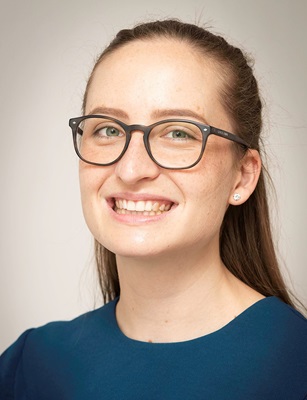2023 | Volume 24 | Issue 6

Surgical registrar, Dr Annie Collinson is about to embark on General Surgical training in 2024, based in South Australia. Before heading south, she will start her training with six months in Darwin and a further six months in Alice Springs.
Born and raised in Adelaide, Dr Collinson completed her undergraduate degree in medicine at the University of Adelaide. She then earned a Master of Surgery degree through the University of Sydney. She has worked as an unaccredited general surgical registrar at Royal Darwin Hospital for the past two years.
Dr Collinson’s journey began in the field of Paediatric and General Surgery in Adelaide before moving to Darwin for the potential of professional and personal growth. This was influenced by several registrars who spoke enthusiastically of their time in the Top End.
She was drawn to the region's unique medical landscape—characterised by a diverse patient demographic, an array of medical conditions, and surgeons skilled in managing a broad range of pathology.
"The variety in our patients’ cultural background, medical complexity, and the unique challenges of a rural location mean that practice is interesting and very rewarding. You can never predict what your day is going to bring," she says.
Dr Collinson was also drawn to the supportive environment that comes with working in a smaller centre. She notes that, “Career progression at all levels is encouraged, with consultants to registrars mentoring more junior team members.”
As a result of her application earlier this year, Dr Collinson was one of five recent Darwin unaccredited registrars to be accepted into the General Surgical Training program. "I think this success reflects the great experience we receive in a rural setting as well as the motivation and attitude of Trainees who choose to work in this environment,” she says.
The blend of professional and personal goals is a common theme among those who make Darwin their medical home.
"People are drawn to Darwin for adventure and the opportunity to expand their skill set. It's a place where you can challenge yourself, and experience something entirely new. But it’s also just a job—and the Northern Territory offers so many activities outside of work. Camping in Kakadu, enjoying music, art and dance at Darwin Festival, and eating breakfast laksa at the weekend markets to name a few."
Working in a place where the patient population includes grey nomads, backpackers, and a significant Indigenous population has enabled her to delve deep into understanding diverse cultures and the specific healthcare needs of her patients.
She emphasises the importance of providing culturally safe healthcare for Indigenous patients, which includes the assistance from the Aboriginal Interpreter Service.
The challenges in remote communities extend beyond cultural differences. Dr Collinson highlights the difficulties her patients face due to the vast distances between communities, which hinder their access to timely surgical care, both in emergencies and for preventative health measures.
Her unique location in Darwin presents unusual medical cases. "I remember looking in our therapeutic guidelines on which antibiotic to choose for crocodile bites. They are a bit like dog bites with saltwater exposure," she says.
The diverse pathologies she encounters, from complex major trauma to diabetic foot disease, highlight the breadth of her medical experiences.
Dr Collinson relishes participating in outreach programs, flying to Katherine and Nhulunbuy to provide surgical care to remote communities.
She believes Darwin is an excellent place for all registrars, interns, and residents. "If you're considering a move to the Top End, go for it. You'll learn a lot, have fun, and encounter unique opportunities you would be unlikely to find in other metropolitan hospitals."
Dr Collinson believes that the experience gained working in a rural setting such as Darwin can make every doctor a more skilled and empathetic healthcare provider.